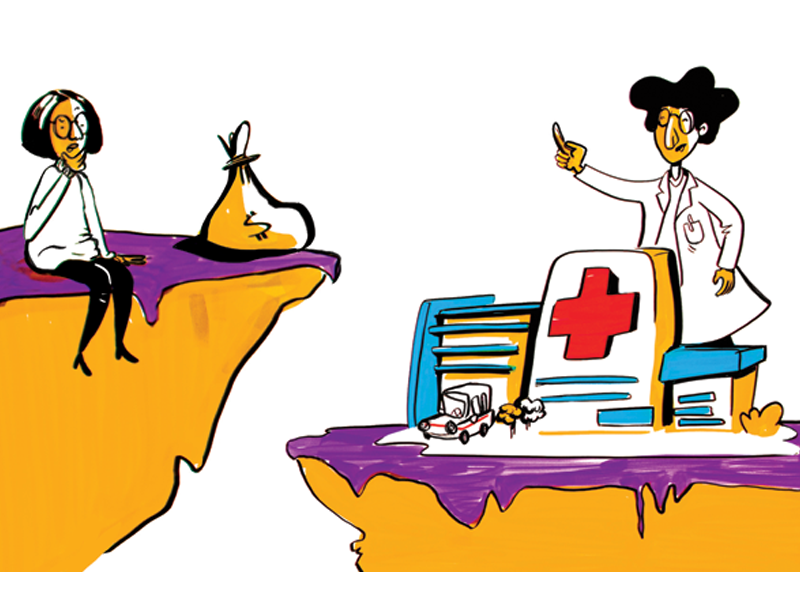Women's health: Addressing disparities and promoting access

- 187
- 0
Women's health is a critical component of overall societal well-being, yet disparities in healthcare access and outcomes persist globally.
From reproductive health services to mental health support, addressing these disparities is essential for promoting gender equality and empowering women to lead healthy and fulfilling lives.
This article explores the challenges, initiatives, and strategies aimed at improving women's health and well-being, focusing on both reproductive health and mental health aspects. Reproductive Health Services: Overcoming Barriers Access to comprehensive reproductive health services remains a significant challenge for many women worldwide, particularly in low-income and marginalized communities. One of the foremost issues is ensuring universal access to contraception and family planning services. Empowering women to make informed decisions about their reproductive health and plan their futures is crucial for their autonomy and well-being.
Additionally, maternal health remains a critical concern, with efforts focused on reducing maternal mortality rates through improved access to prenatal care, skilled birth attendants, emergency obstetric care, and postnatal support. Advocacy for sexual and reproductive rights is another key aspect of addressing healthcare disparities. This includes advocating for women's rights to make autonomous decisions about their bodies, including access to safe and legal abortion services where permitted by law. Preventive care is also essential in women's health, with initiatives aimed at promoting regular screenings for cervical cancer, breast cancer, and sexually transmitted infections (STIs) to detect and treat conditions early. Initiatives such as community health programs, mobile clinics, and partnerships with local healthcare providers play a pivotal role in bridging the gap in access to reproductive health services. Moreover, education and awareness campaigns are critical in empowering women to prioritize their health and seek appropriate care, thereby improving overall reproductive health outcomes.
Mental Health Support: Breaking the Stigma Despite its profound impact on well-being, mental health remains a neglected aspect of women's health globally. Various factors contribute to mental health disparities, including gender-based violence, maternal mental health issues such as postpartum depression and anxiety, and inadequate access to mental health services that are culturally sensitive and responsive to women's needs.Addressing the stigma associated with mental health is crucial in promoting access to care. This includes breaking down barriers to seeking help and increasing awareness about mental health issues specific to women. Community-based support groups, counseling services, and telemedicine platforms are emerging as effective means to provide mental health support to women, especially in underserved areas. Integrating mental health into primary care settings and training healthcare providers in gender-sensitive approaches are critical steps toward holistic care. By addressing mental health alongside physical health, societies can better support women in achieving overall well-being and resilience. Policy and Advocacy Efforts Advocacy plays a pivotal role in shaping policies that prioritize women's health and well-being. Key policy areas include advocating for increased funding and resources allocated to women's health programs and services. This includes advocating for legislative reforms that protect women's reproductive rights and ensure equitable access to healthcare services. Additionally, supporting research initiatives that address gaps in women's health research and inform evidence-based policies and interventions is crucial. Engaging in global health agendas that prioritize women's health as a human right and a key component of sustainable development is essential for driving systemic change. Conclusion: Towards Comprehensive Care In conclusion, achieving health equity for women requires a multifaceted approach that addresses both reproductive health services and mental health support. By dismantling barriers to access, combating stigma, and advocating for policy reforms, societies can empower women to prioritize their health and well-being.
Collaborative efforts among governments, healthcare providers, non-governmental organizations (NGOs), and communities are essential to creating environments where all women can access the quality care they deserve. Ultimately, investing in women's health not only improves individual outcomes but also strengthens families, communities, and societies as a whole. By prioritizing women's health and well-being, we move closer to achieving gender equality and creating a healthier, more equitable world for all.

















































